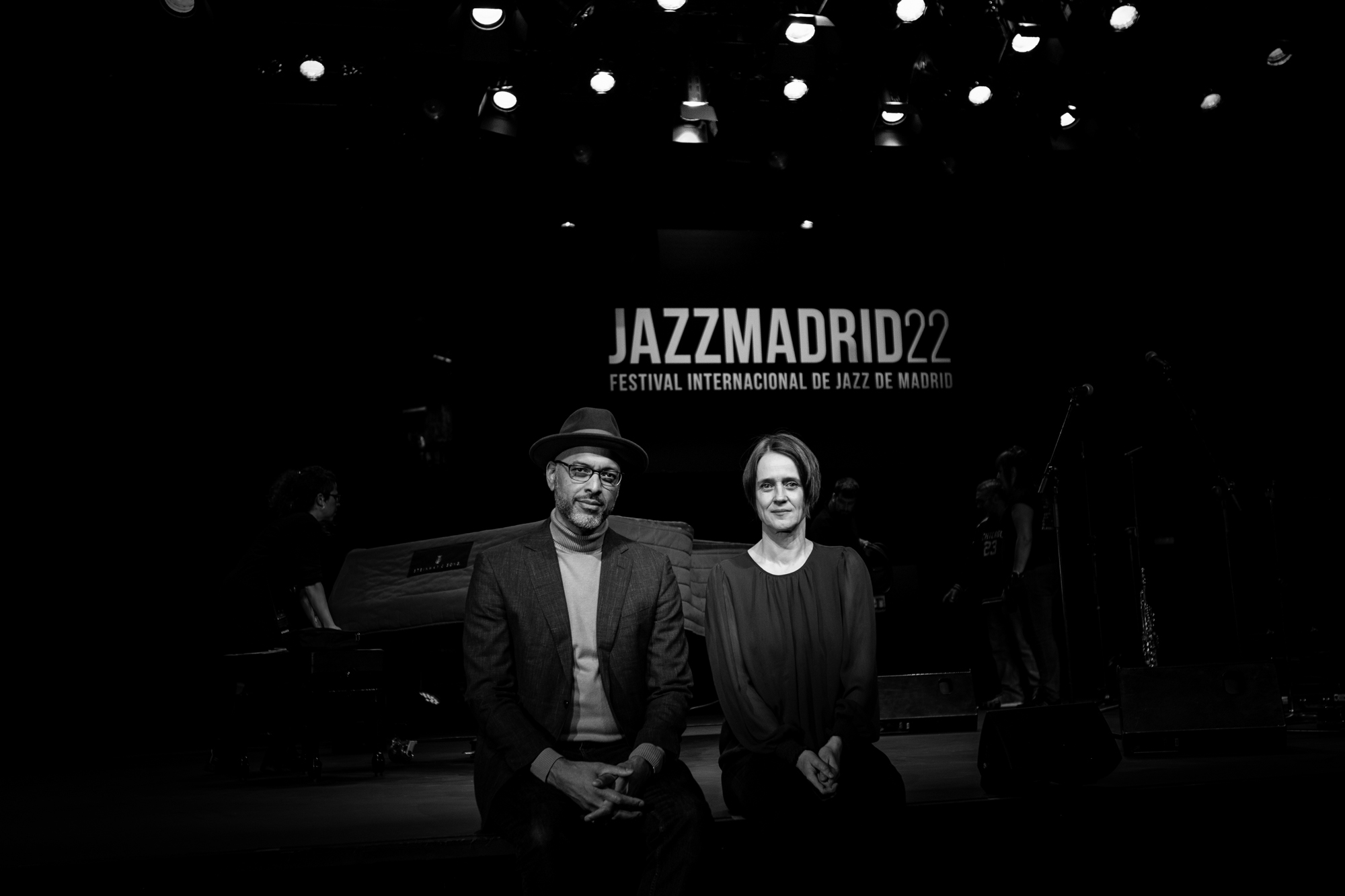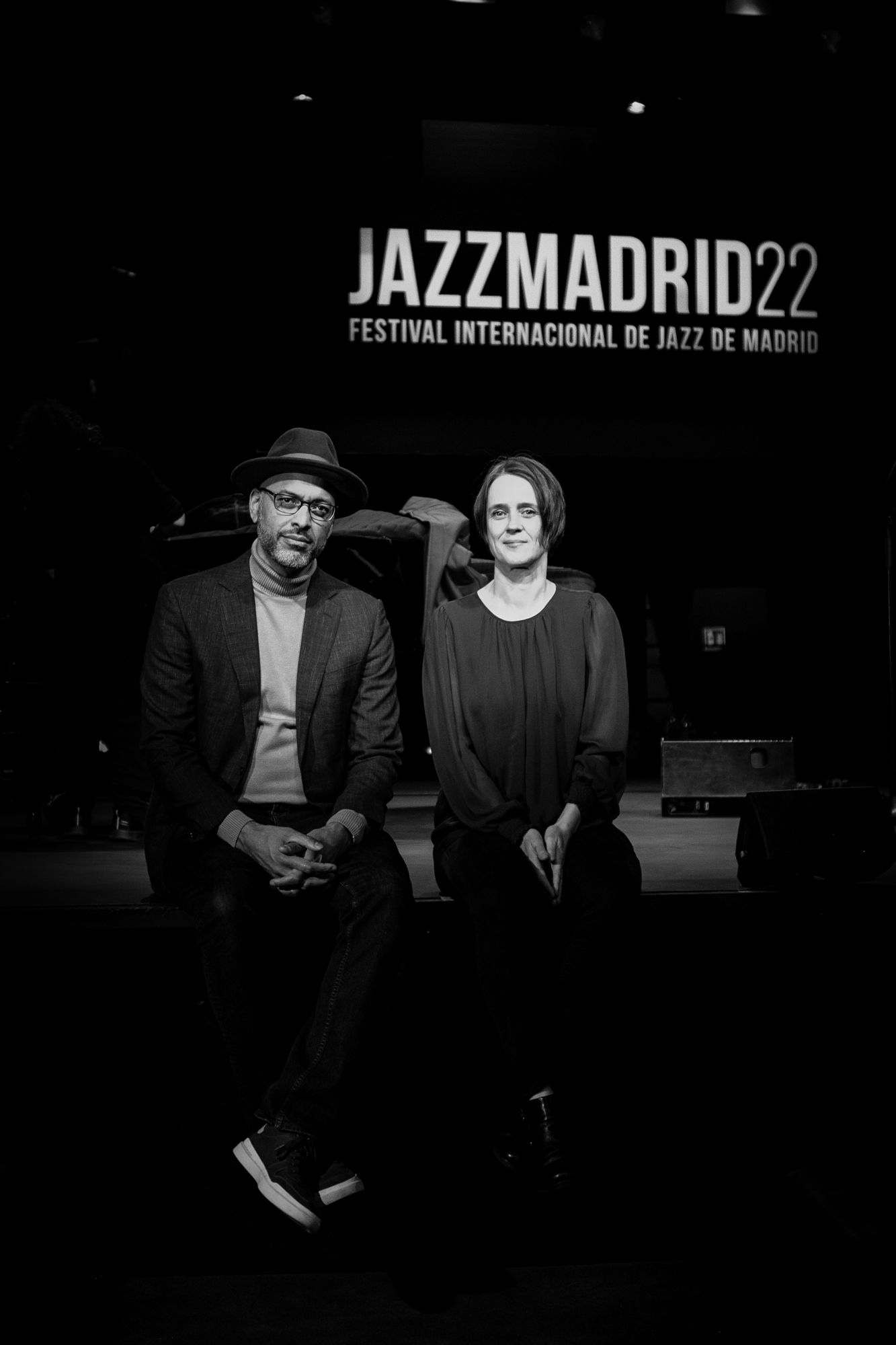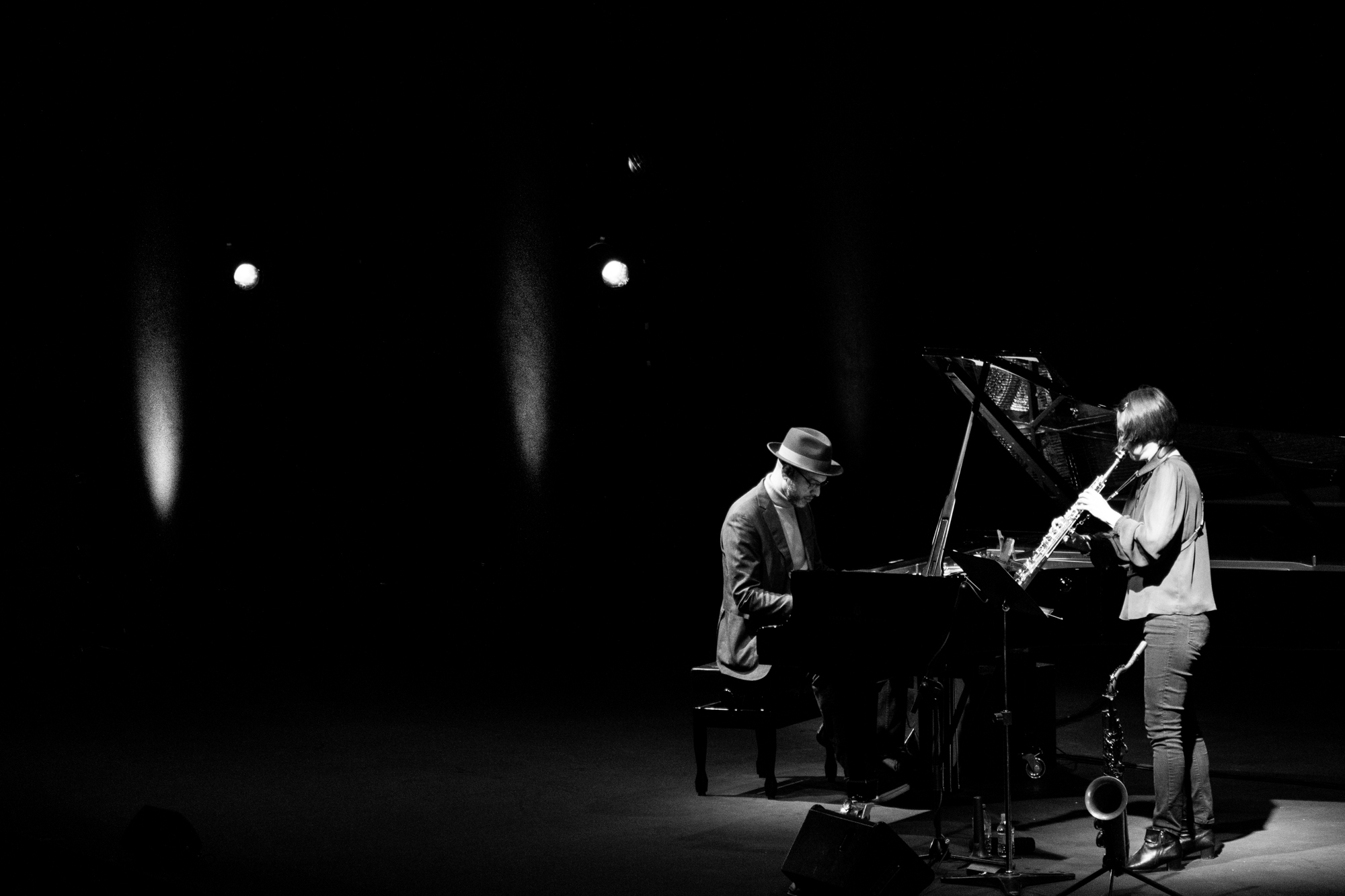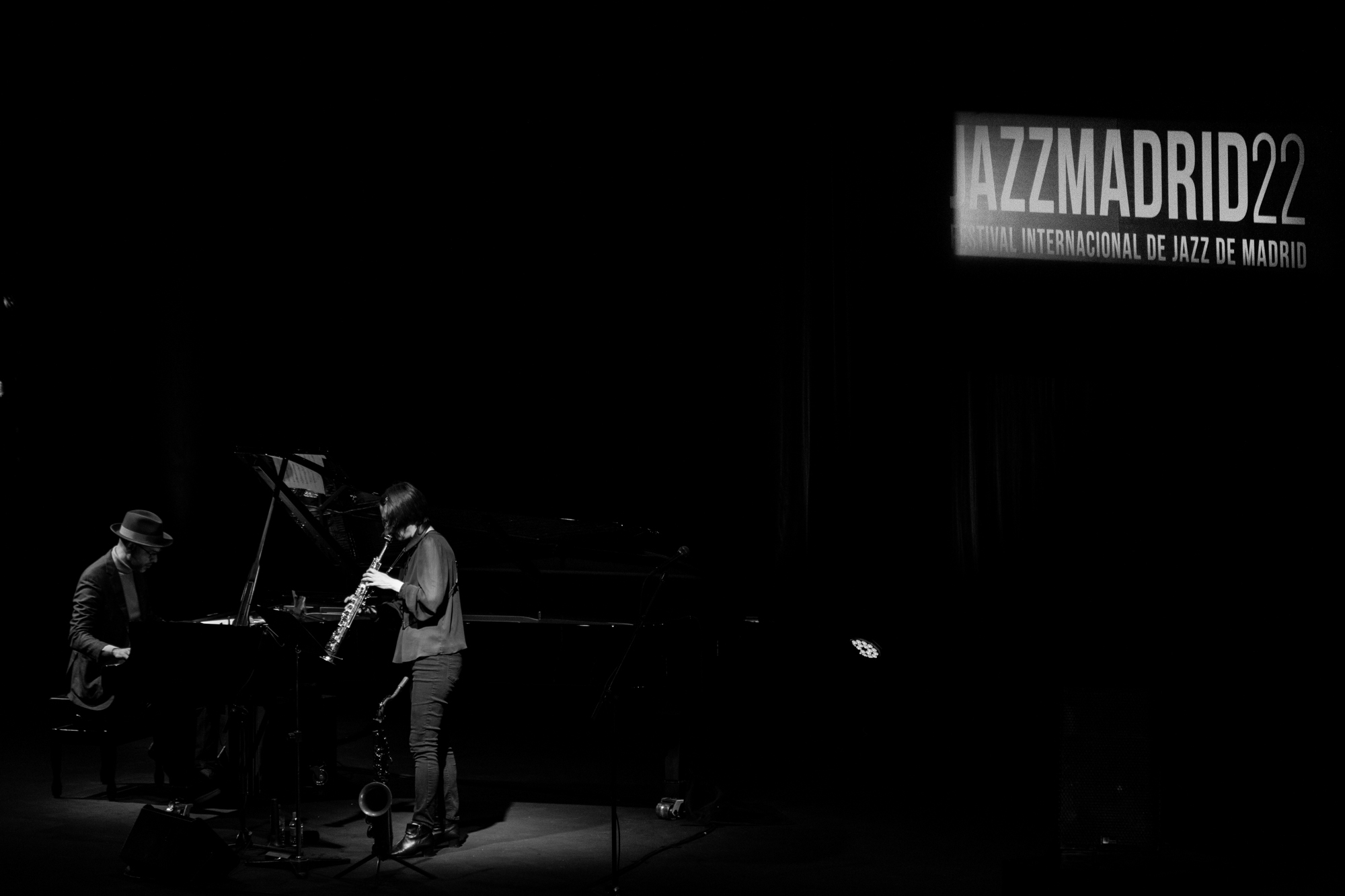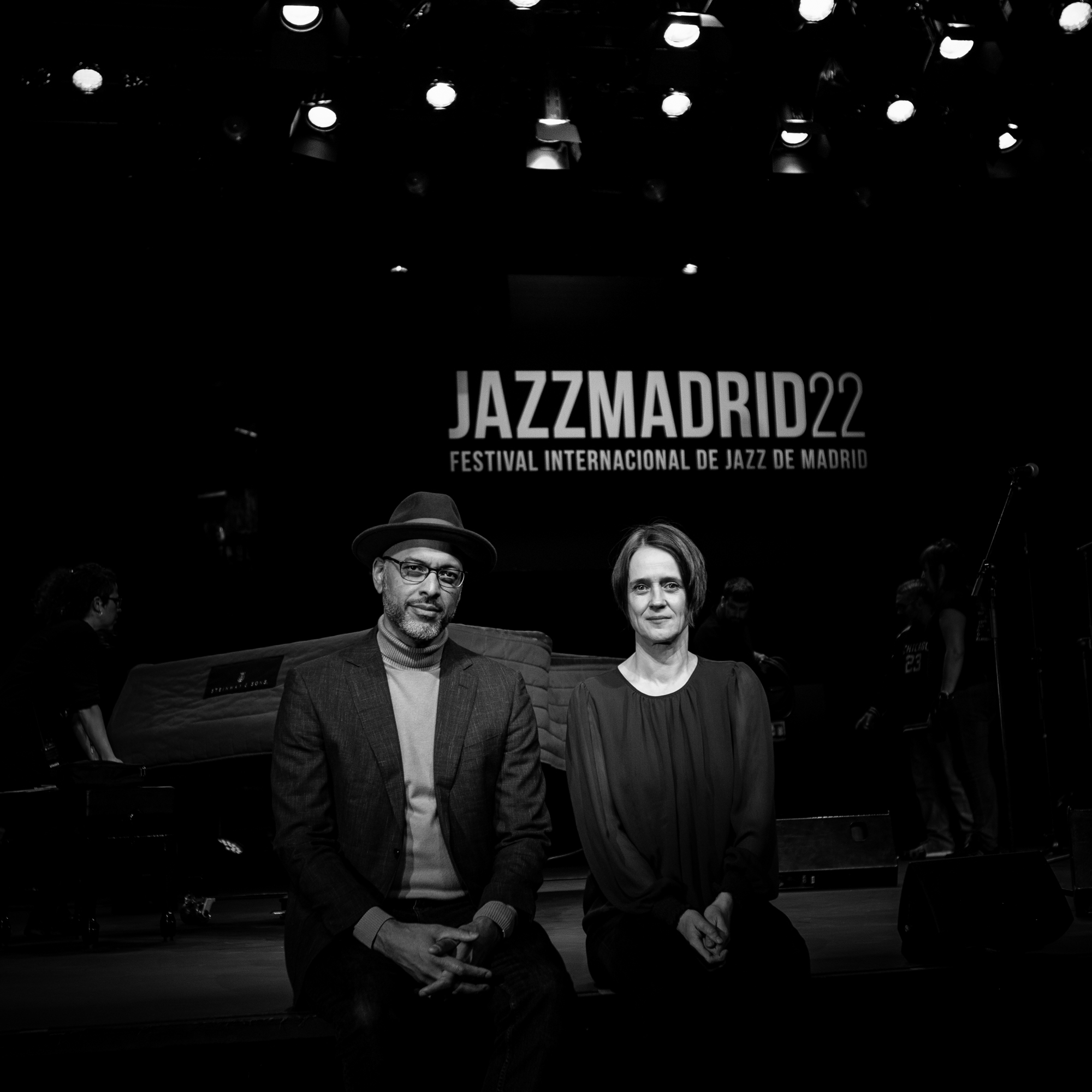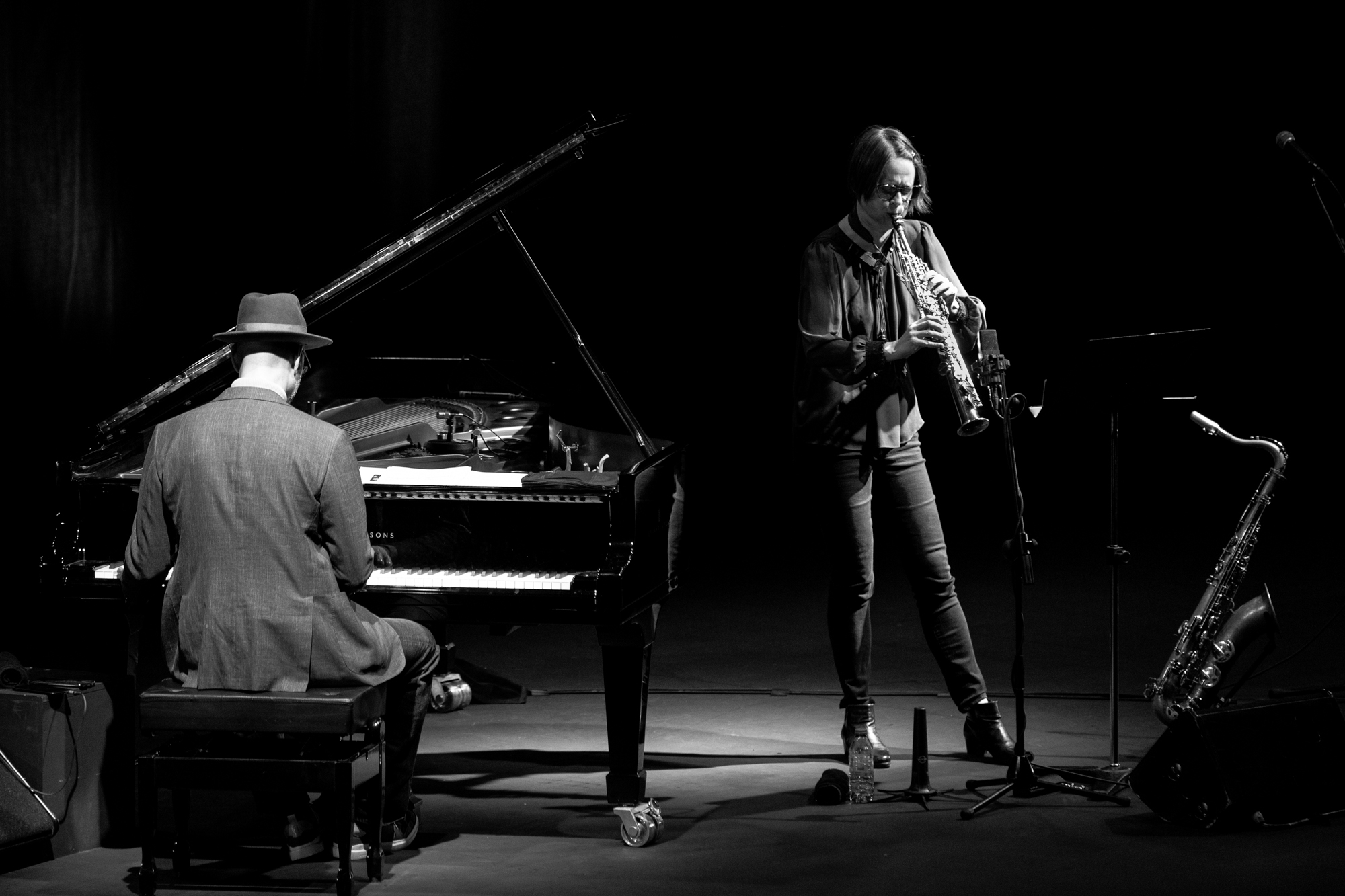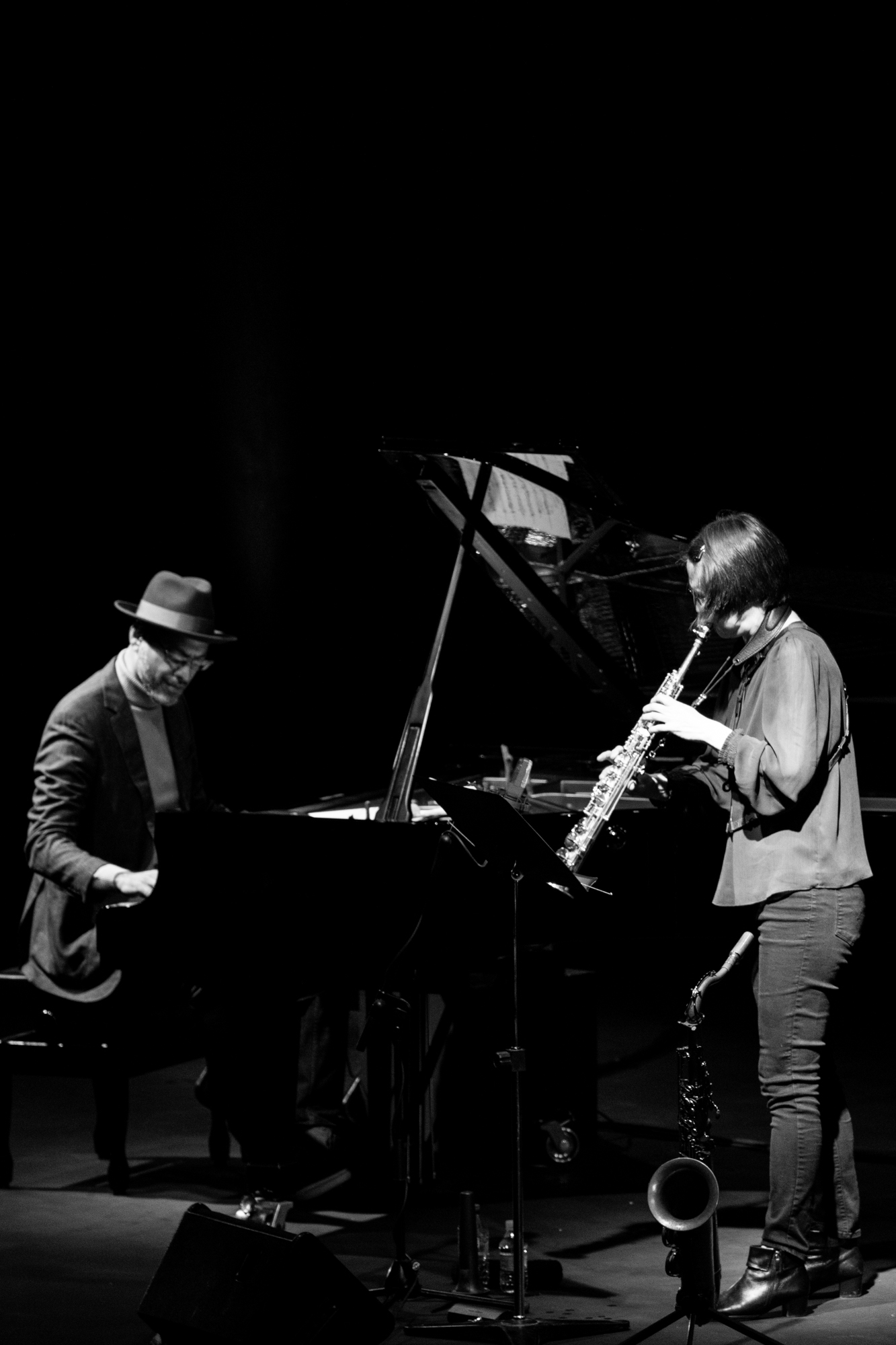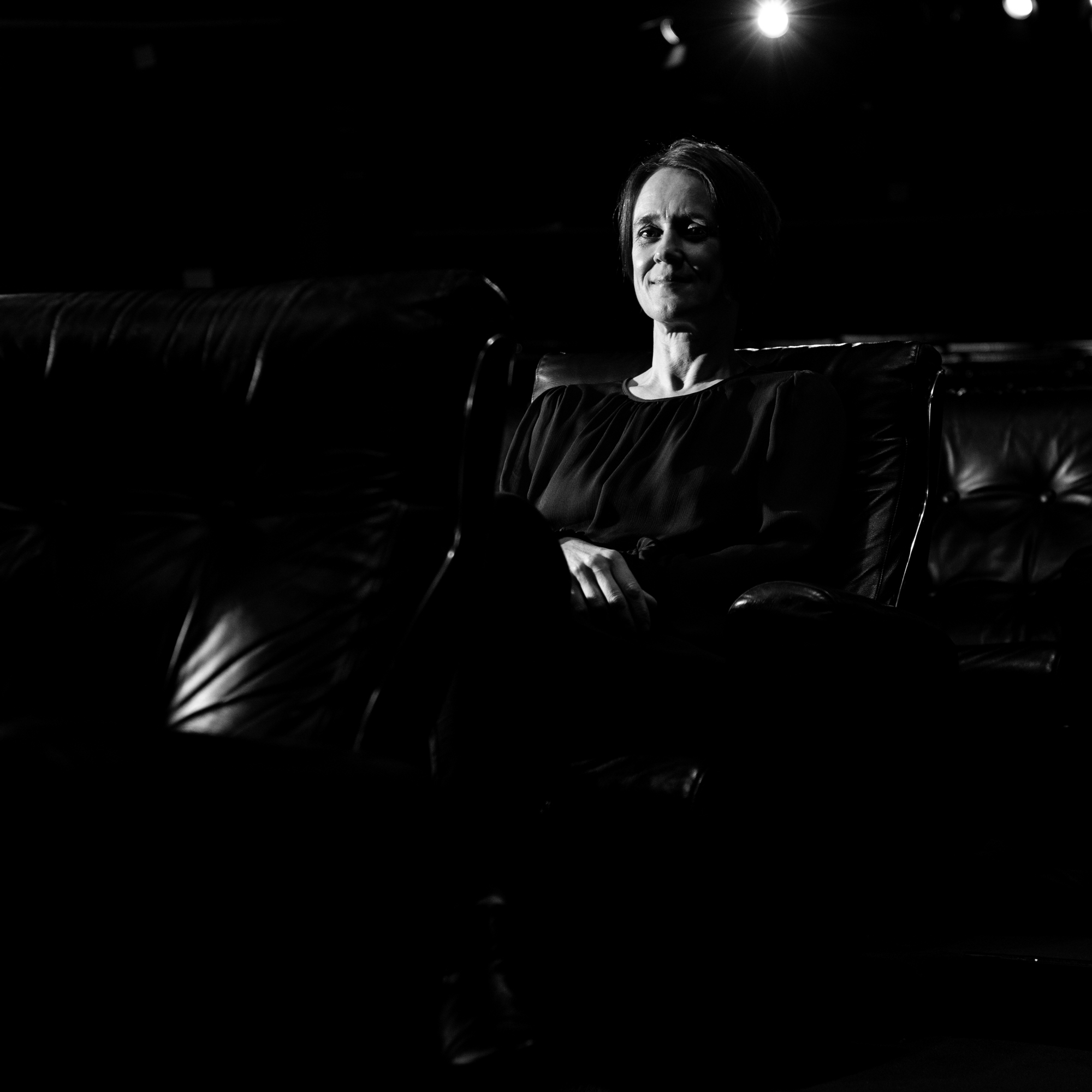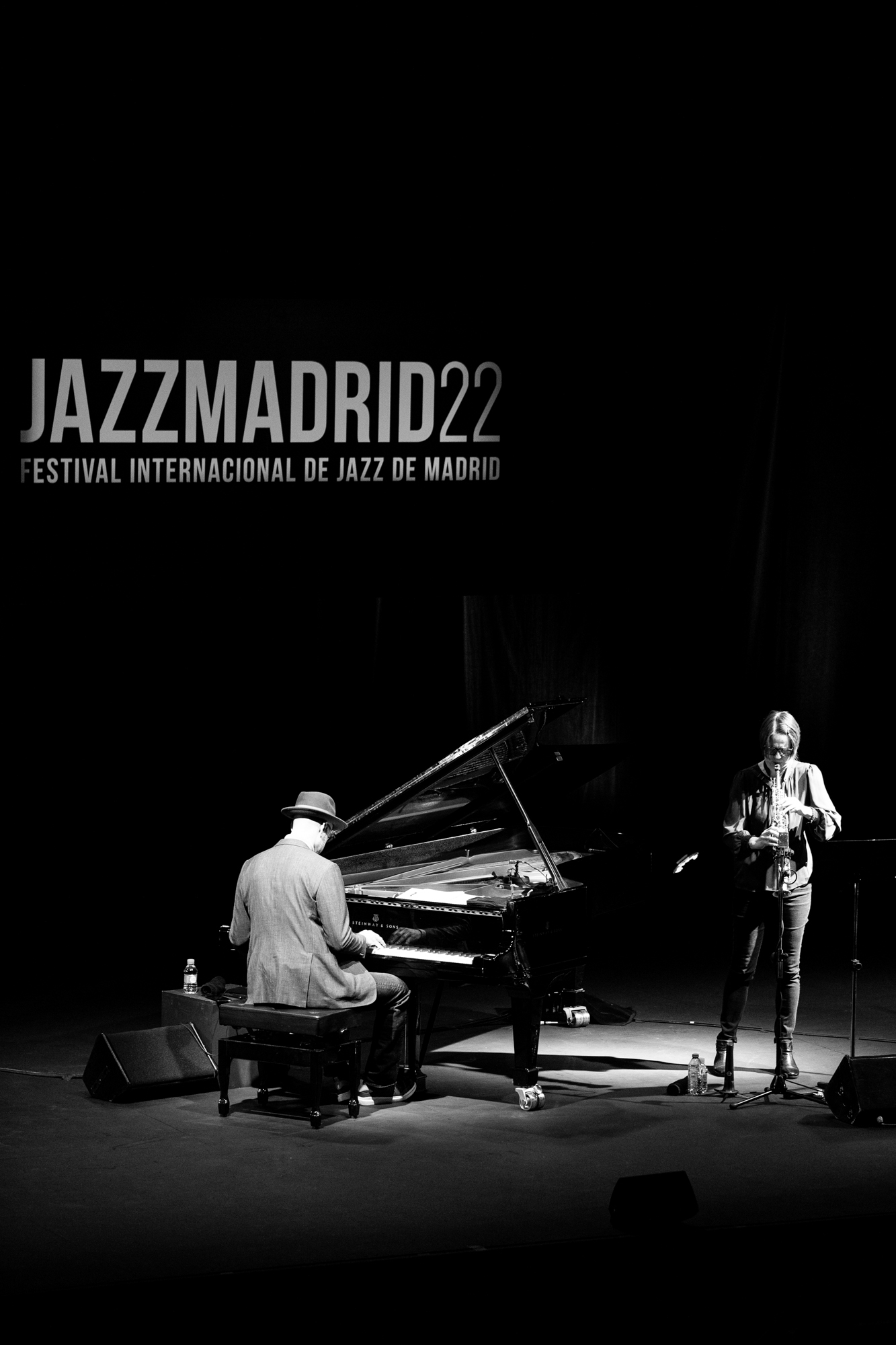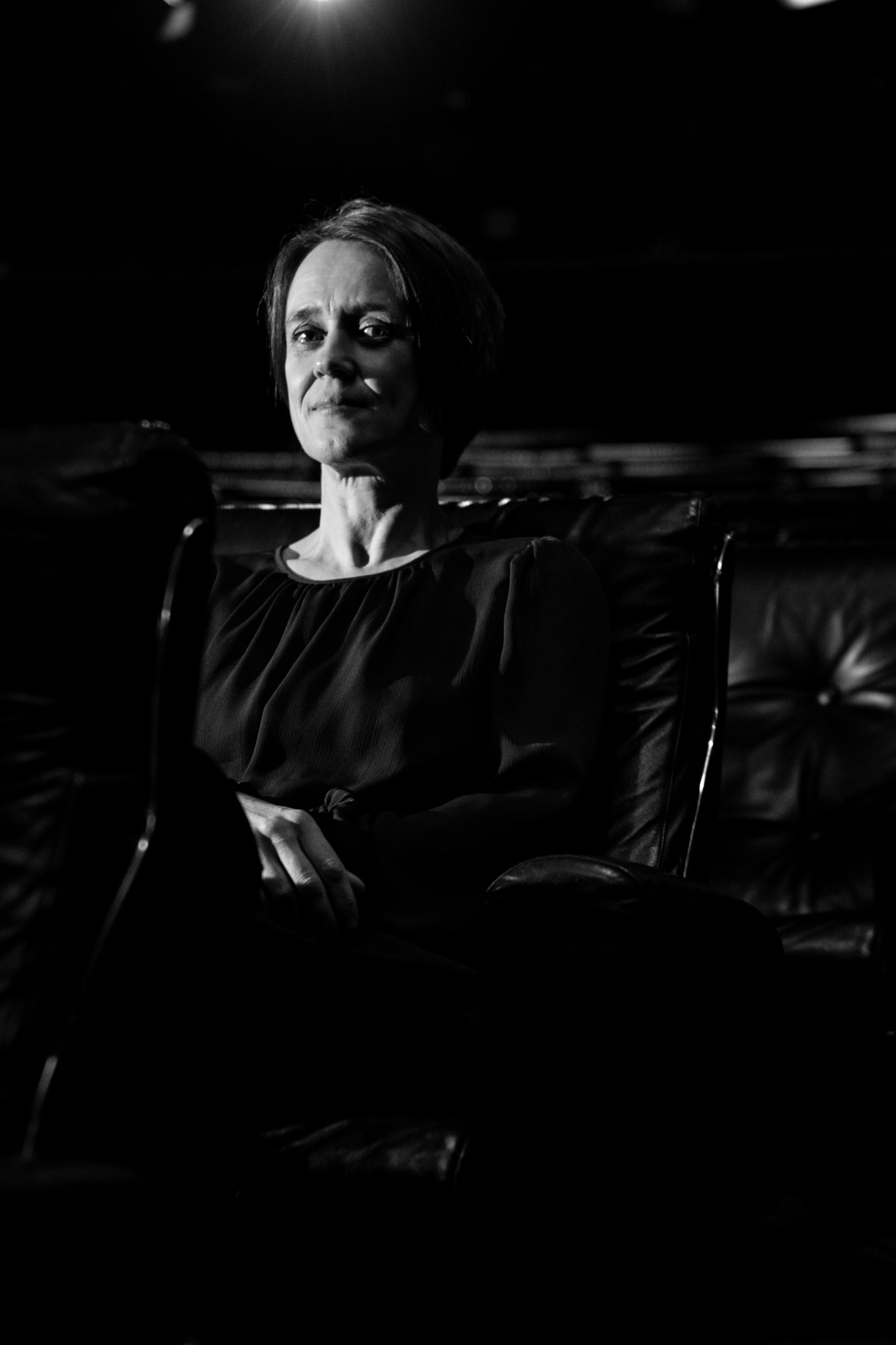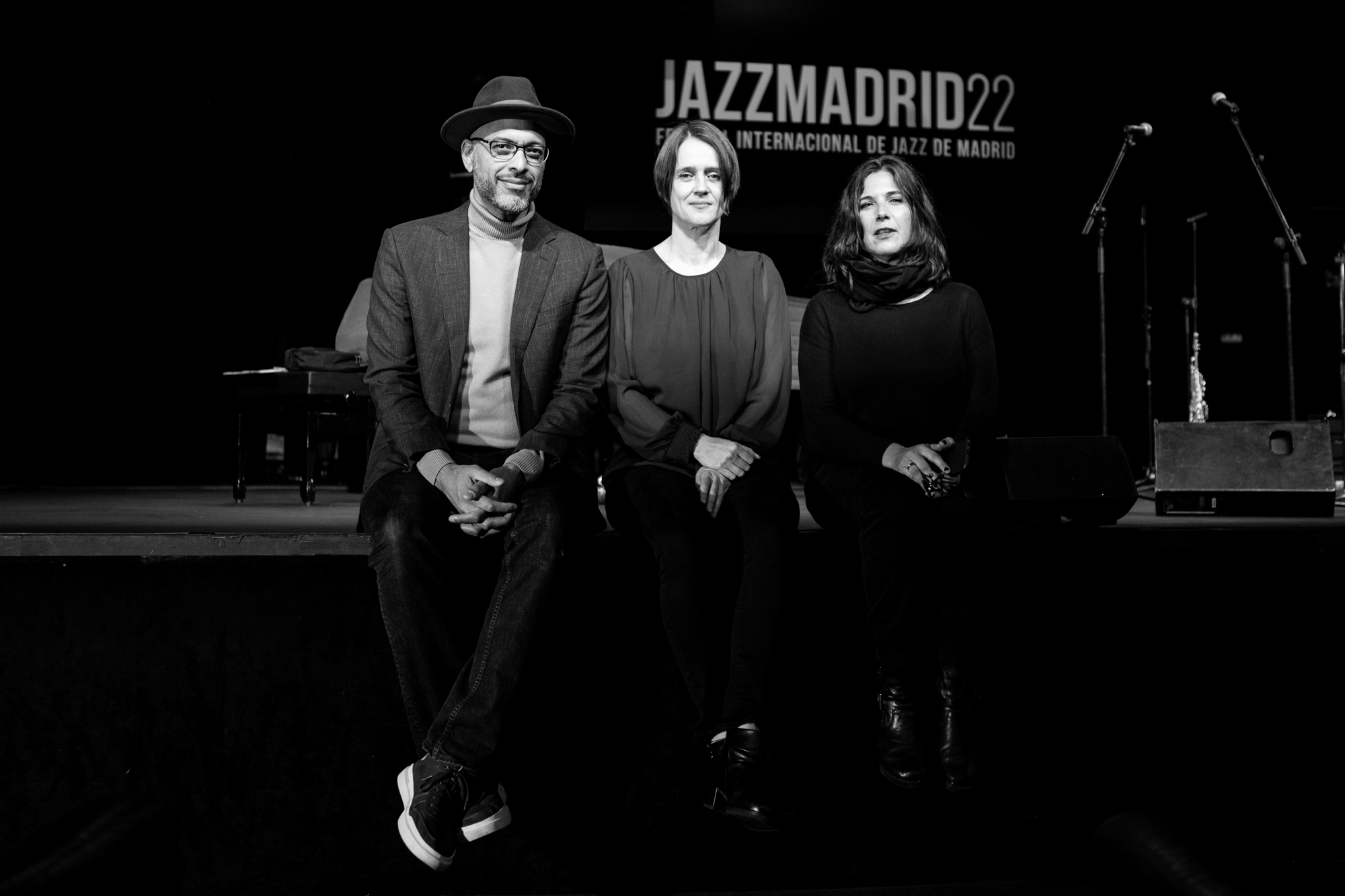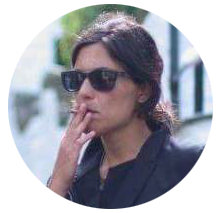Ingrid Laubrock
Interview
In the evening of November 21 st, I had the pleasure of interviewing one of the most creative musicians of her generation. The German saxophonist Ingrid Laubrock.
The interview was done one day before her live performance with, Andy Milne, the Canadian pianist, at the Fernán Gómez Theater, within the Madrid International Jazz Festival 2022
In&Outjazz: Hello Ingrid, welcome to the interview, thank you for coming.The interview is for In&OutJazz Magazine. So very excited for having you and sending you these following questions. So I should start with the first one. I saw that during the pandemic you recorded duo series. Is that what you’re going to bring here to Madrid tomorrow with Andy Milne. Is that how it’s said? I think so.
Ingrid Laubrock: Actually I started the duo series I think in 2017 o 2018. So it’s a series I’m recording for Intakt Records over maybe…, spaced out over a decade. So the first record was with Aki Takase, the second one with Kris Davis and Andy Milne was the third installment. So, you know, hopefully we keep going, yeah, over another like five or six years, spread out. But yeah, Andy is the person I’m bringing…
Tomorrow right? And like, on the different series of duets that you just said and you have recorded, what does Andy Milne…, like what’s his contribution, like his personal contribution?
I think for every player is very different and I’m deliberately trying to pick people who I, who have a really…have a personality and are great pianists and composers. To me, Andy was
the person…, like I didn’t know Aki Takase really well before I played, before I recorded, but I had played a concert with her already. With Kris Davis I have a long long relationship, and with Andy I did not have this relationship, I knew him personally but not as a…, I had never played with him. So it wasn’t much more…, you know? I trusted my instict…
Yeah!
…That this was going to work well because I knew him as a person, he’s a really great guy, I like his music and I like his thoughtfulness. He to me is more steeped maybe in the jazz tradition
Okay, nice!
Although Kris is too. And he just brings a really…, there’s a sense of adventure and also he has such beautiful ways of harmonizing melodies, of harmonizing improvisation which I really
love, and a great rhythmic proportion aswell
Yeah!
And on top of that he uses, he has a very subtle and beautiful way of using piano preparation which I’ve always really enjoyed
Nice
And one of the concerts that I saw him perform was with his quartet with Benoit Delbecq and two japanese koto players whose names I can’t remember right now. And it was just a, there was a subtlety to it that I really, I thought it was beautiful
Yeah, nice. So can you tell me something about the duos that you’ve recorded with Tom Rainey? He’s a drummer right? It’s different from recording with a pianist right? Like, the interaction is different…
Sure…I mean. You’re basically monophonic as an instrument, right? As a melodic instrument when you play with drums. So you have to come up with different solutions. We Recorded over the whole pandemic, what we tried to do is to include a lot of compositions by friends or by people that we knew, so it felt a little bit like…We would bring our friends into the room and rehearse with them because we were so cut off from everybody in New York. So there was a sense of…, like…, we’re working on our friends music or we’re working on composer’s music that we adore, but we’re trying to find adaptations for this unusual duo, because that was what we had. That was the only possibility of playing music that we had, and it was really fun and moving for us, moving kind of creative…excercise in a way you know? To adapt large scale pieces and just play them on drums and saxophone. It was a good creative endeavor in a way, not to try and find out solutions of making something different every week
Very nice, yeah sure. Well, I think I know a few more people that do this kind of format, this duo format. I’m thinking right now of Ben Wendel. I don’t know if you’ve seen those “Standards with friends” sessions, but he also does duos, but it’s a different concept for sure. So, personally, how would you describe the biggest challenges and difficulties when approaching your music in this format of a duo?
In the duo format in general?
Yeah
Well, I mean, you have to generate a lot right? As a saxophone player, you’re basically playing a lot and the two duo partners have to be in an intense conversation. There’s no…, you
can’t really, I mean obviously you can leave space and not play but you have to be engaged at a very very high level of concentration, there’s a high level of concentration needed and in a way, creativity, and I love it because it’s so intimate and you can…, and also so open in a way, you have all these solutions because there’s just one…or all these paths that you can potentially go to because there’s only person to interact with
Yeah, sure.
So you’re not that fixed, you know? In terms of, we have to absolutely stick to this arrangement beacuase there’s twenty people that are following the same arrangement. You have a much more “effort-looseness” of the freedom with this kind of formation
Yeah, definitely. And in the other side you’ve also written a lot of music for large ensembles and big bands I think. So how’s that possible? How do you approach that other format?
Well, I haven’t really written for big band, like I maybe have one big band piece. But I have composed for orchestra and large new music ensembles. It’s something that I’ve been interested in for a while and just spent time devoloping over the last ten years. It’s just a sound I love being in, and there’s so much detail in this music. Like when you compose for musicians like that, it forces you to think a lot about detail. Where is the sound on in an instrument, dynamics, rhythm, you know? So to me it’s like a very, almost a spiritual…, spiritual is the wrong word I think, but almost a work where I collect myself, I’m with myself, I’m examining my own tastes, and my own rhythmic feel et cetera. And I can translate it into the more improvise music
Yeah, very nice. Actually according to improvisation, I read that Jason Moran has called you an improvisational visionary. What are your thoughts in such a…
That’s nice of him hahaha
What are your thoughts on that statement?
Well, you know?, it’s very nice of him. I have played with Jason a few times and I love playing with him. He’s a wonderful musician and conceptualist and, you know, fearless, and just super spirited and great guy. I’m honored that he said something like that about me hahaha
And how would you describe your musical evolution in these two decades, as an improviser?
As an improviser? I mean, it’s just like one of those things that I think you just grow gradually. Sometimes you grow and then you stay on a “plato” for a while, and then sometimes you grow faster, there is different rates of growth, but for me it’s always been like I’ve always seen myself as a sort of eternal student who’s hopefully getting better and learning the entire time. It has nothing to do with school or nothing to do with…, it’s just got to do with life.
And sometimes you learn life lessons that inform your expression, your musical expression. Sometimes you learn technical things, sometimes you learn about composition, there’s different strains of the whole music thing that eventually come together, or that come together throughout your life I think.
And that’s how I see myslef. I see sometimes I compose a lot, that informs my playing. Sometimes I’m put in a situation where I’m a side-person for somebody who writes some really amazing and challenging music, so I have to learn something, some new skills to be able to deal with that. And I’m, I like to be open and put myself into situations where I’m learning
And when you write, or you compose, what’s the method that you follow? Cause you were saying before that one of Andy Milne’s, let’s say highlights, is that he harmonizes in your improvisations in a very nice way. You have this improv situation going in your tunes, but you also have like a very detailed composition right?
Yeah, I write quite detailed
Yeah, so what’s your method? Do you write all by yourself and then bring it that to the rehearsal with the other guy or how do you work?
Usually yes. Like, usually that’s how I compose with…, for say like a project like this. I write at the piano mostly, specially if a piano player is involved. I write mostly on the piano. Sometimes on the saxophone if I feel, if the content is more melodic, like if it’s really coming from a melody, even if I write it on the piano, I play it on the saxophone, because that opens new possibilities or either avenues usually. But yeah, I usually bring the music in as, like finished, and then we work on it.
If something doesn’t work…, or I’ll send it to the musician in flagrante and say “please tell me if something is not working or something, or something could be easier or better in your instrument”, you know? I also work with some new music groups where I workshop the music.
So I’ll send them fragments and I ask them to play through them or I meet up with them and ask them to play through them. And they quite often…, just hearing it in the room gives you new ideas or gives you knew possibilities and…, so I personalize it for those musicians. You know I’m always wanting to change things…
Interesting, interesting, yeah, cause listening to your music I was shocked and wow, how does this person write this music? How does she approach it? Very nice, very nice!
Two last questions. Could you tell me something about your relationship with Arts for Art?
Arts for Art? Yeah, they’re really lovely hand hardworking organization. Based, led and runned by Patricia Nicholson Parker and William Parker. They are mostly there to promote free jazz, free improvised music, black free improvised music, and they have been around for a long time, they’re incredibly supportive, and really really active, and just great people
Yeah, sure! What are you into right now? Hearing, listening, what are the records your listening to right now?
Oh wow, to be honest, what’s happening right now is that I’m writing actually a classical piece for a piano trio, so piano, chello and violin. So I’ve been checking out a bunch of piano trios
Okay, wait, classical trios?
Yeah, like one by Ravel, one by Morton Feldman, Anthony Cheung, just, actually a lot of them, like…, the chellist send me a big footer of music to check out, and I’ve been sort of, just listening to that a lot
Very nice, that’s a surprise. Okay, one last question. How’s your experience being with Intakt Record Label?
Intakt Records? Oh great, they’ve been supporting me since 2008, they’re like one of the few record companies I think that have survived, in a kind of meaningful way, right, that they still create a lot of music, but they don’t overextend either, they know what they’re doing.
They have become friends, they have become like a family really, and, yeah, so, you know, they reléase music by artists that they trust, so they don’t mess with your music. They let you get on with it.
Yeah, it’s always greatful yeah!
I’m pretty happy to have them as a general support. They’re also very open to let you release on other labels, as long as it fits in with their programm and you’re not abusing
I’m thankful too for their job.
Yeah hahaha, I will tell them that!
And for being able to listen to artists like you are. Thank you very much.
Well I hope I get to see you there and it was nice to meet you
Yeah, I hope that too. Very nice. Thank you for being. It’s been awesome to have you and to meet you.

